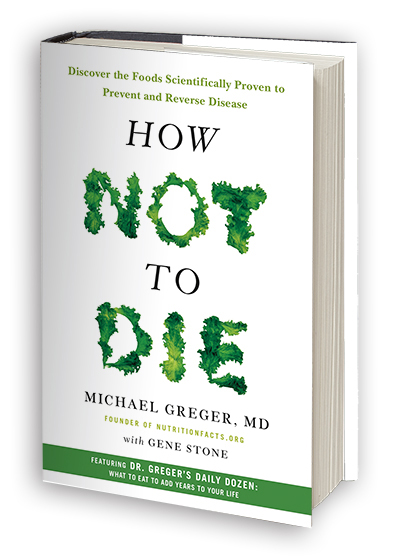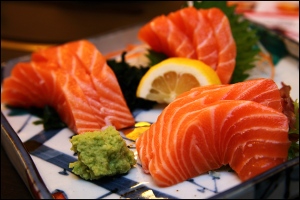Not a typo.
Not April Fool’s Day.
Not a spontaneous and mystical possession by the spirit of George McGovern.
Not even a social experiment to see how many people I can get to unsubscribe from this blog in the span of a day (PLEASE STAY, I LOVE YOU).
Maybe a little bit of this, though:

Oh, Homer!
Over a year ago, I gave a presentation at the Ancestral Health Symposium called “Lessons From the Vegans: What the Paleo Movement Can Learn From the Success of Plant-Based Diets.” In retrospect, I probably should’ve called it “Lessons from the Low-Fatters: What the Paleo Movement Can Learn from the Success of People Who Eat Ridiculous Amounts of Carbs and Don’t Keel Over,” but that was too long for the conference brochure. And for my verbally dyslexic mouth. And also, I didn’t know it was really going to be about fat until I fell down an extended PubMed rabbit hole and, upon regaining consciousness two days later, realized I had found the Nerd Project to end all Nerd Projects.
In truth, though, this post started brewing long before my talk. Having witnessed some pretty impressive healing when I noshed among the low-fat raw vegans (and, after a decade of self-experimenting, concluding I do best on a lower fat diet myself), I just can’t get on board with the categorical “Fat rules, carbs drool!” trend infiltrating both mainstream and alternative nutrition. There are too many exceptions to the rule, too many gaps in the theory, and too many skinny fruitarians frolicking in the sun-dappled fig orchards.
But even beyond that, this post is born of a belief I hold dearly—one that guides my approach to research and underlies the very mission of this blog:
We can’t ignore evidence in order to preserve an ideology.
At least not under the guise of “science.”
When confronted with something that challenges our belief system, the worst possible thing we can do is clamp our hands over our eyes and say, “You do not fit into my understanding of reality; therefore, you do not exist. BE GONE, NON-EXISTING ANOMALY.” Yet that’s what so many of us do—often without even realizing it—when faced with outcomes our chosen philosophy can’t explain. On the flip side of cherry picking, we cherry-throw-out: selectively deleting data that threatens our version of the truth, nipping any cognitive dissonance in the bud before it has a chance to rattle our worldview. It’s easy to be “right” when we’ve shoved all competing evidence into the wood chipper!

For a long time in the nutrition world, our thrown-out cherries were the ones challenging the low fat ideology. We discarded the high fat Inuit cherries and the milky, bloody Masai cherries; the coconut-filled cherries of the Tokelau; the cherries of the traditional reindeer-herding Sami; even the smothered-in-butter French cherries—just to name a few.* It didn’t make sense that these populations could exist and be healthy with their fat-gorging ways, so we slapped them with a “paradox” sticker and deemed them weird exceptions to the Dietary Laws that govern the rest of us.
* For the record, all these examples come with some major caveats, and I don’t think they should be used as evidence to support the kind of high-fat diets many people are eating today (though they don’t necessarily stand as counter-evidence either). More on that in an upcoming post!
Only in more recent years have those cherries been rescued from the compost bin and plopped back into the world’s collective fruit bowl (please wash before consumption). Bestselling books like “Good Calories, Bad Calories” and “The Big Fat Surprise” carved new histories in which fat was an innocent bystander, dragged into the mud by bad science and even badder scientists. The phrase “healthy fat” moved from oxymoron status to popular catchphrase. People whir 80 grams of butter into their coffee and call it breakfast. Apparently Bob Dylan had it right in all but plurality: Time, it is a-changin’!

As awesome as the pro-fat movement has been for challenging outdated beliefs and reviving some truly nutritious foods, there’s been a dark side to the process as well. All of a sudden, the same rhetoric once leveled against high-fat diets is being slung against low-fat ones. Not only is low fat (and by consequence, high carb) not the dietary angel we once thought, the new story goes, but it’s actually the source of all edible evil: the driving force behind our obesity epidemic, a major contributor to heart disease, the puppet master pulling those blood-sugary strings of insulin resistance and diabetes. If only the USDA had recommended 6 to 11 servings of bacon instead of 6 to 11 servings of grains, we wouldn’t be in this mess!
See the problem here?
In the process of redeeming fat, we traded one form of oversimplified blame for another. And it’s led to a brand new wave of cherry genocide. We now dismiss (or paradox-sticker) high-carb populations in the same way we justified ignoring the high-fat ones. We snub decades of clinical success involving fat reduction (to the point where you might think such evidence doesn’t even exist—in which case, you’re in for a surprise with this post!). We deny the potential for low-fat diets to be anything other than a metabolic train wreck, ending in a smoking heap of shrapnel and insulin injections. “Surely those low-fatters are starving all the time,” we proclaim. “Surely they’re making themselves diabetic! They might feel okay right now, but won’t those carby diets go all Cujo on them as the years progress, eating their souls and whatnot?”

Let me be frank here.
If we’re really after the truth, we can’t keep throwing away perfectly good cherries. Seriously. It’s gotta stop. When we censor data we don’t like instead of revising our theories accordingly, we perpetuate the same problems we’ve been battling for decades: partial truths treated as gospel; public policies that do more harm than good; baffled consumers who can’t figure out if it’s the omelet that’s killing them or the OJ they wash it down with.
Do we really want to keep heading down that road? It probably goes somewhere awful! Like Stockton. (Sorry, Stockton.)
Hence why we’re gathered here today, around this massive compilation of pixels, delving into a decidedly hot topic. This post is my attempt to rescue some discarded cherries and return them to the Fruit Bowl of Our Lives. Which, if nothing else, will one day make a fantastic soap opera.
I do want to make one thing abundantly clear before we continue, though. The title “In Defense of Low Fat” doesn’t imply its inverse, “In Attack of High Fat.” Quite the opposite! My goal here is to create a space where two very different dietary approaches can sit down for tea, respectfully coexist, and interact without any subsequent homicide investigations. In fact, I’ll be arguing for a more panoramic view of nutrition where the success of both high-fat and low-fat diets are compatible, and maybe even make sense. It just requires zooming out farther than we’re used to looking, and acknowledging that our ever-rivaling communities could actually learn a lot from each other.
For the sake of reading ease, this sucker is divvied up into two parts: this one, which discusses the crazy-huge body of research behind truly low-fat diets (especially the really obscure stuff!), and the upcoming Part 2, which ties everything together with science, and whatnot. And because this post is long even by my standards, I’ve created a clickable Table of Contents to help you navigate the labyrinth. Good luck! (You’ll need it…) (more…)









